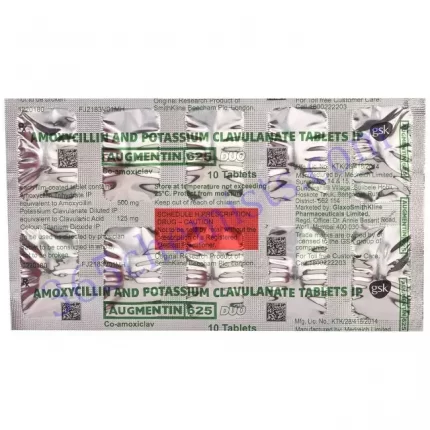LNZ 600mg Tablet (Linezolid 600mg)
Lnz 600 MG Tablet is an antibiotic that is used to treat infections in the lungs, skin, blood, etc. caused by bacteria. It is used in vancomycin-resistance conditions. This medicine is not recommended for treating common cold, flu or other viral infections since it is not effective in treating them.
Substitutes
List of substitutes for Lnz 600 MG Tablet
Cadizo 600 MG Tablet
Cadila Pharmaceuticals Ltd.
Lizofit 600 MG Tablet
Intas Pharmaceuticals Ltd.
Lizoforce 600 MG Tablet
Mankind Pharmaceuticals Ltd.
Lizomac 600 MG Tablet
Macleods Pharmaceuticals Pvt. Ltd.
Orlina 600 MG Tablet
Orchid Chemicals & Pharmaceuticals Ltd.
Side effects
Major & minor side effects for Lnz 600 MG Tablet
Diarrhea
Dizziness
Pale skin
Skin rash
Headache
Nausea or Vomiting
Convulsions
Irregular heartbeat
Change in taste
Trouble sleeping
Uses of Lnz 600 MG Tablet
What is it prescribed for?
Bacterial Septicemia
This medicine is used in the treatment of septicemia which is an infection of the blood caused by Staphylococci and Streptococcus pyogenes.
Pneumonia
This medicine is used in the treatment of pneumonia which is the most common type of lung infection caused by Streptococcus pneumoniae, Haemophilus influenzae, etc.
Skin and Structure Infection
This medicine is used in the treatment of skin and structure infection like cellulitis, wound infection, or a cutaneous abscess caused by Streptococcus pyogenes and Staphylococcus aureus.
Bacterial infections
This medicine is used for the treatment of infections caused by susceptible bacteria.
Vancomycin-Resistant Enterococcal Infections
This medicine is used for the treatment of vancomycin-resistance enterococci (VRE) infections.
Related Products
List of related products
Lnz 600 MG Infusion
When not to use?
Allergy
This medicine is not recommended for use in patients with a known allergy to linezolid or any other inactive ingredients present along with the formulation.
Monoamine oxidase inhibitors (MAOI)
This medicine is not recommended for use within 14 days of taking monoamine oxidase inhibitors (MAOI) due to the risk of severe adverse effects.
Warnings
Warnings for special population
Pregnancy
This medicine is not recommended for use in pregnant women unless absolutely necessary. All the risks and benefits should be discussed with the doctor before taking this medicine.
Breast-feeding
This medicine is not recommended for use in breastfeeding women unless absolutely necessary. All the risks and benefits should be discussed with the doctor before taking this medicine.
General warnings
Decrease blood cell count
This medicine is known to lower the WBC and platelet count. Close monitoring of complete blood count is necessary. The treatment should be discontinued if any signs of the low blood cell count are identified.
Optic neuropathy
This medicine may cause vision problems in some patients receiving for more than 28 days. Any symptoms of changes in vision like blurred vision, changes in color vision, etc. should be informed to the doctor immediately.
Lactic acidosis
This medicine may cause a serious reaction called lactic acidosis in some patients. Inform the doctor if you experience unexplained nausea and vomiting. Appropriate corrective measures, dose adjustments, or replacement with a suitable alternative may be necessary based on the clinical condition.
Hypertension
This medicine is not be recommended for use in patients with uncontrolled blood pressure, pheochromocytoma, thyrotoxicosis, etc. unless absolutely necessary. Close monitoring of blood pressure levels is necessary while receiving this medicine. Appropriate corrective measures, dose adjustments, or replacement with a suitable alternative may be necessary based on the clinical condition.
Hypoglycemia
This medicine should be used with extreme caution in diabetic patients due to the risk of hypoglycemia (low blood glucose levels). Close monitoring of blood glucose levels is necessary while receiving this medicine. Appropriate corrective measures, dose adjustments, or replacement with a suitable alternative may be necessary based on the clinical condition.
Driving or operating machinery
Use of this medicine may cause lightheadedness, blurred vision, dizziness, etc. in some patients. It is advised that you do not perform any activities such as driving a vehicle or operating machinery if you experience any of these symptoms.
Clostridium difficile-associated diarrhea
Avoid the use of this medicine if the patient experiences severe diarrhea after receiving therapy with this medicine. Antibiotic therapy will cause an imbalance in the normal microbial flora in the large intestine, which promotes the growth of a bacteria called Clostridium difficile. This will result in severe diarrhea. Appropriate corrective measures, dose adjustments, or replacement with a suitable alternative may be necessary based on the clinical condition.
Dosage
Missed Dose
Take the missed dose as soon as you remember. If it is almost the time for your next dose, skip the missed dose. Do not double your dose to make up for the missed dose.
Overdose
Seek emergency medical treatment or contact the doctor in case of an overdose.
Interactions
All drugs interact differently for person to person. You should check all the possible interactions with your doctor before starting any medicine.
Interaction with Alcohol
Description
Interaction with alcohol is unknown. It is advisable to consult your doctor before consumption.
Instructions
Interaction with alcohol is unknown. It is advisable to consult your doctor before consumption.
Interaction with Medicine
Glimepiride
Ondansetron
Ethinyl Estradiol
Monoamine oxidase inhibitors
Live cholera vaccine
Disease interactions
Gastrointestinal Diseases
This medicine should be used with extreme caution in patients having a history of gastrointestinal diseases, particularly colitis, since it may worsen the patient’s condition. Report any incidence of severe diarrhea, abdominal pain, blood in stools, etc. to the doctor immediately. Appropriate dose adjustments or replacement with a suitable alternative may be required based on the clinical condition of the patient.
Kidney Disease
This medicine should be used with extreme caution in patients with kidney diseases due to the increased risk of severe adverse effects. Close monitoring of kidney function, appropriate dose adjustments, or replacement with a suitable alternative may be required in some cases based on the clinical condition of the patient.
Liver Disease
This medicine should be used with caution in patients with liver diseases due to the increased risk of severe adverse effects. Report any undesired side effects to the doctor on priority. Close monitoring of liver function, appropriate dose adjustments, or replacement with a suitable alternative may be necessary based on the clinical condition of the patient.
Seizures
This medicine should be used with caution in patients with seizures due to the risk of worsening the patient’s condition. Close monitoring of the clinical condition, appropriate dose adjustments, or replacement with a suitable alternative may be necessary based on the clinical condition.
Food interactions
Information not available.
Lab interactions
Information not available.
This is not an exhaustive list of possible drug interactions. You should consult your doctor about all the possible interactions of the drugs you’re taking.
General Instructions
Take this medicine exactly as instructed by your doctor. Drink an adequate amount of water to prevent irritation. Do not take it in larger or smaller quantities than prescribed/advised. Ensure that the course of treatment is completed. Report any severe undesired side effects to the doctor immediately. Do not stop the use of this medicine without consulting your doctor.













Reviews
There are no reviews yet.